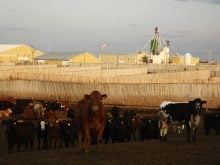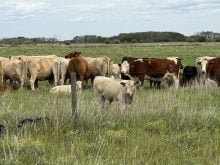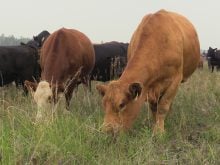This cattle market information is selected from the weekly report from Canfax, a division of the Canadian Cattle Association. More market information, analysis and statistics are available by becoming a Canfax subscriber by calling 403-275-5110 or at www.canfax.ca.
Fed prices rise
Fed cattle prices continue to exceed expectations, with prices rising by 50 cents to $3 per hundredweight.
Read Also

House ag committee to undertake several studies
The House of Commons standing agriculture committee has set its agenda for the coming months. Members began the fall sitting with a two-hour update on international trade
Alberta fed steers were up 66 cents the week ending Feb. 7, closing the week at $276.41 per cwt. Fed heifer prices rose by $2.99 to finish the week at $275.62 per cwt.
This rally follows January’s historically large volume of fed cattle exported to the United States. According to the U.S. Department of Agriculture’s weekly data, fed cattle shipments from Canada were 72 per cent larger than in January 2024.
Historically weak Alberta fed basis levels have encouraged fed cattle exports, coming at the expense of western Canadian packers.
Weekly fed slaughter volumes thus far for January have not surpassed 40,000 head per week. Canfax reported that this indicates at least one packing plant is operating on four-day work weeks.
Western Canadian fed slaughter volume for January is 27,000 head smaller than last year, the smallest since 2020.
Dressed sales were reported in the range of $458-$465 per cwt. delivered, with most at $460 per cwt. Cattle were scheduled for delivery anywhere from immediately to the week of Feb. 24.
There were instances in the last couple of weeks where cattle were bought flat without heavy weight carcass discounts.
Interest from U.S. packers was supportive, and sales across the line worked back to the high $270s per cwt. f.o.b. the feedlot.
In Ontario, dressed sales were reported at $480 per cwt. delivered, up $10-$20 per cwt. from the previous week. Cattle that traded were scheduled for delivery in the second half of February.
Non-fed prices down
Non-fed auction volumes in Alberta were lighter during the week ending Feb. 7 due to cold weather and cancelled sales.
Alberta D2 and D3 cows were down $2-$3 per cwt. and butcher bulls were down $10 per cwt. Railgrade cows were fully steady, in the range of $350-360 per cwt.
After four weeks of higher prices in Ontario, D2 cows were slightly more than $7 per cwt. softer than the previous week, while D3 cows were $2 per cwt. softer.
Cow slaughter volumes were lower across Canada for the month of January.
In Western Canada, cow slaughter in January was six per cent smaller than in 2024 and nine per cent smaller than the five-year average. This was the lowest volume since 2012.
In the East, cow slaughter was two per cent lower than in 2024 but five per cent higher than the five-year average, the fourth-largest amount since 2014.
Last year, cow exports south of the border were mixed. Western Canadian cow exports were 25 per cent smaller than in 2023 and 29 per cent smaller than the five-year average, making 2024’s export volume the smallest since 2019.
In Eastern Canada, however, cow exports were six per cent larger than in 2023 but eight per cent smaller than the five-year average. This was driven by exports in May to July.
Weather slows auctions
Alberta auction volume for the week ending Feb. 7 totalled slightly more than 17,000 head, 32 per cent lower than last year.
Cold weather forced some auction markets to postpone sales, contributing to lower auction volumes.
While all classes of Alberta feeder cattle traded softer, prices were only $8-$13 per cwt. off from the record-high prices set in January, even in light of uncertainty around potential U.S. tariffs.
Demand from feedlots for steer calves continues to be strong. The Alberta 550-pound steer-to-heifer spread for the month of January was $64.50 per cwt., while the Alberta 850 b. steer-to-heifer spread was $37.08 per cwt. Both spreads are the widest on record.
Canadian feeder cattle exports to the U.S. for the week ending Jan. 25 were 3,215 head, up 67 per cent from last year, the largest year-to-year increase so far. Exports from Western Canada were 2,376 head, the largest since October 2024.
Cutouts slightly lower
With seasonally softer demand pressuring prices, U.S. Choice cutouts closed the week at $323.98 per cwt. and Select at $314.7 per cwt., both slightly lower than the previous week.
The Choice-to-Select spread was $9.21 per cwt., continuing to remain steady with the spread this time last year and the five-year average.

















